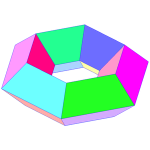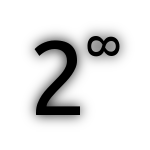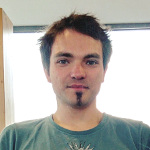What is ... a vector bundle?
Thursday, November 01st, 2012 | Author: Konrad Voelkel

A vector bundle is a morphism that looks locally on the target like a product of the target with a vector space.
We will call the target space the
Is that the correct mathematical definition? It doesn't mention what kind of spaces we look at, what kind of morphism I'm talking about, what the product is, locally in which sense, vector space over which field, do we allow infinite dimension, ... so it's not a mathematical definition in the pedantic sense. I will give you pedantic definitions in this article, just to satisfy my need to write down what I consider to be a good terminology.
Category: English, Mathematics | Comments off















